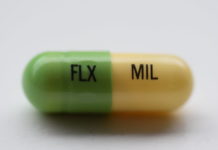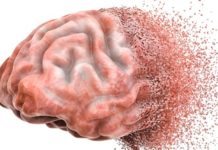Relapse in Antipsychotic Drug Trials is Poorly Defined
There is a lack of consensus in the definition of ‘relapse’ across randomized controlled trials of antipsychotic maintenance treatment for schizophrenia and psychosis.
Researchers Challenge Evidence for Antidepressants in Youth
Researchers shed light on the precarious nature of evidence from efficacy trials of antidepressant medication to treat symptoms of major depressive disorder in children and adolescents.
NICE Guideline Update Acknowledges Severe Antidepressant Withdrawal
A new update to the NICE guideline for depression suggests providers discuss long-term, severe antidepressant withdrawal symptoms.
“Flimsy Evidence” for Esketamine as Depression Treatment
A new article documents the “flimsy evidence” behind the recent FDA approval of the party drug esketamine for the treatment of depression.
Clinical Trials Show Antidepressants “Not Beneficial in the Long Term”
Clinical trials also consistently fail to measure and report long-term harmful effects.
Researchers: “Antidepressants Should Not be Used for Adults with Major Depressive Disorder”
A new review, published in BMJ Evidence-Based Medicine, concludes that antidepressants should not be used as the risks outweigh evidence for benefits.
Ambushed by Antidepressant Withdrawal: The Escape Story
I’m alive. More than 30,000 veterans in the past decade alone are not. I was not warned of the risks of this drug. I was not told that once on it, I might never be able to get off it, or the nightmare that would ensue when I tried. I know millions of others were not told either.
Zoloft Does Not Improve Depression, Even in Severe Cases, Study Finds
Despite their finding, the researchers suggest that SSRIs be given to people who do not meet criteria for depression or anxiety.
Antidepressant Use Associated With More Violent Suicide Attempts
A new study found that taking an antidepressant medication was associated with a heightened risk of suicide using violent means.
Antidepressant Use Does Not Prevent Suicide, Study Finds
A new study has found that antidepressants are ineffective for reducing suicide attempts. Researchers report that the risk of suicide is particularly high in the first month after starting an antidepressant.
Therapy Gets More Effective Over Time While Antidepressants Decrease in Effectiveness
New review of long-term depression data finds psychotherapy more effective over time whereas antidepressants decrease in effectiveness.
The Rise of the Digital Asylum
The digital pill Abilify MyCite, which is now being introduced into the market, foretells of a future where such technology is used to monitor the behavior, location and "medication compliance" of a person 24 hours a day.
Guidelines Recommending Antidepressants “in Contradiction with the Current Evidence”
Researchers critique the German S3 guidelines for depression promoting antidepressants.
How Do We Test the Effects of Long-Term Exposure to Antipsychotics?
A new attempt to study the neurological effects of long-term exposure to antipsychotics uses healthy volunteers on minimal doses for 15 days.
How Exercise Can Help With First Episode Psychosis
New study examines the experiences of people utilizing an exercise program following a first-episode psychosis.
Risk of Depressive Relapse Three Times Higher After Previous Antidepressant Use
A new study found that having been prescribed an antidepressant previously was associated with an increased risk of depressive relapse.
Adding Fluoxetine to Therapy Not Superior to Therapy Alone in Depressed Teens
The addition of fluoxetine to CBT did not further reduce depressive symptoms in young people with moderate-to-severe depression.
Antidepressants Blunt Ability to Feel Empathy
A new study suggests that taking antidepressants impairs empathy, while the experience of depression itself does not.
Review Finds FDA Approval of Digital Antipsychotic Misguided
The approval of the digital antipsychotic may open the door for more pharmaceutical company profits without evidence of benefits to patients.
Teacher Perspectives on Student ADHD Medication Use
Qualitative study examines patterns in teacher attitudes and knowledge related to medication of students for ADHD-type behaviors.
Positive Antidepressant Study “Misleading” and “Erroneous”
An analysis of last year’s positive finding in The Lancet about antidepressant efficacy shows errors, obfuscations, and misrepresentations.
Lack of Clear Guidelines Prevent Clinicians from Reducing Antipsychotics
A recently published study from noted critical psychiatry expert Joanna Moncrieff explored the barriers that prevent clinicians from helping service users in discontinuing or...
Discontinuation of Antipsychotics Improves Cognitive Functioning
A study, recently published in Psychological Medicine, examined the cognitive functioning of individuals with schizophrenia who discontinued antipsychotics, and those who maintained their antipsychotic...
Antidepressant Use More Than Doubles Risk of Suicide Attempts
Throughout the past two decades, studies have warned of increased suicide rates in those taking antidepressants, especially in children and adolescents. Researchers also documented...
Anticholinergic Psychiatric Drugs Linked to a 50% Increase in Dementia
People who take anticholinergic drugs, such as antidepressants and antipsychotics, are at a 50% higher risk of dementia.

































